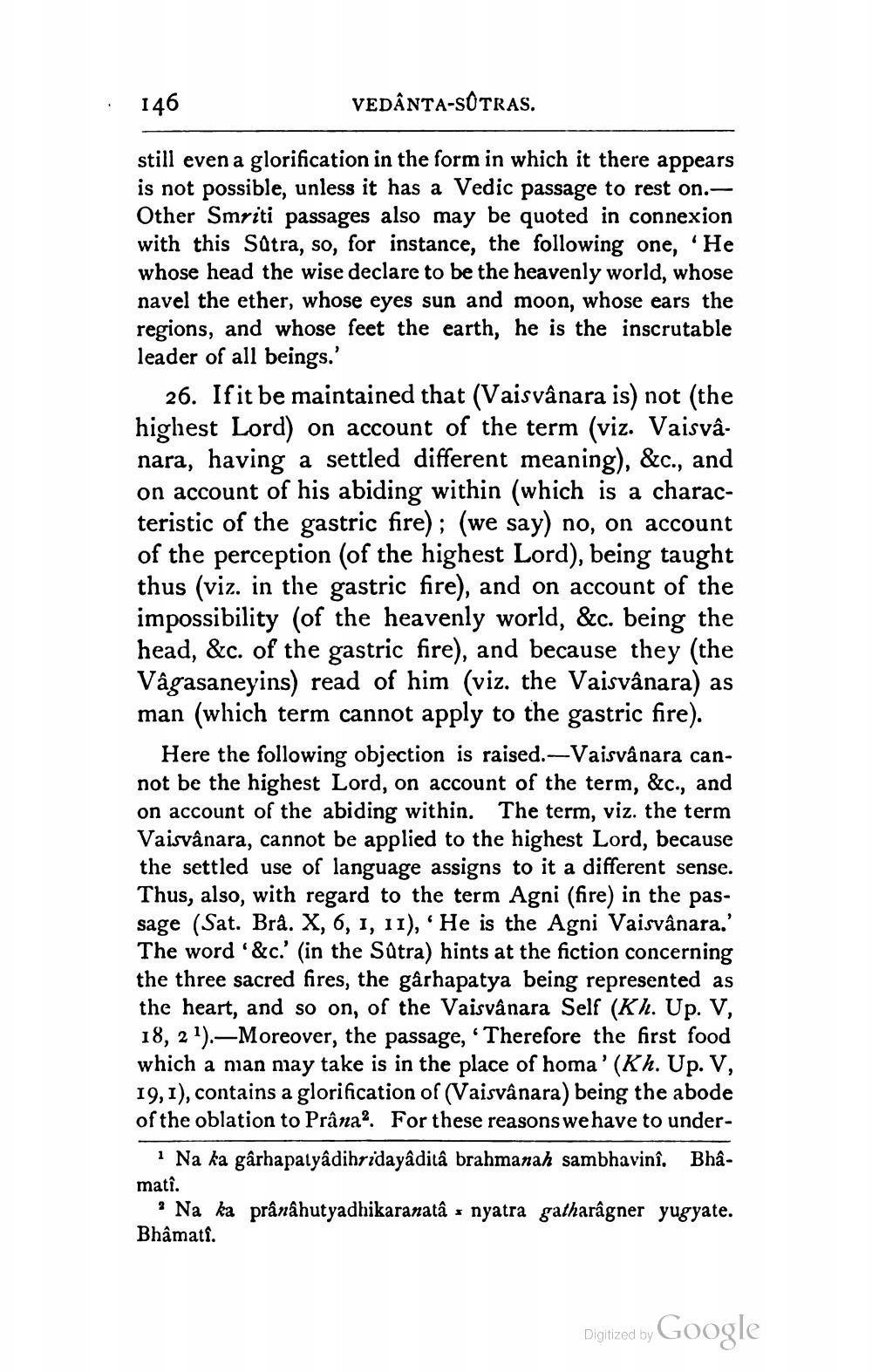________________
146
VEDÂNTA-SÛTRAS.
still even a glorification in the form in which it there appears is not possible, unless it has a Vedic passage to rest on.Other Smriti passages also may be quoted in connexion with this Satra, so, for instance, the following one, 'He whose head the wise declare to be the heavenly world, whose navel the ether, whose eyes sun and moon, whose ears the regions, and whose feet the earth, he is the inscrutable leader of all beings.'
26. If it be maintained that (Vaisvânara is) not (the highest Lord) on account of the term (viz. Vaisvânara, having a settled different meaning), &c., and on account of his abiding within (which is a characteristic of the gastric fire); (we say) no, on account of the perception (of the highest Lord), being taught thus (viz. in the gastric fire), and on account of the impossibility (of the heavenly world, &c. being the head, &c. of the gastric fire), and because they (the Vagasaneyins) read of him (viz. the Vaisvânara) as man (which term cannot apply to the gastric fire).
Here the following objection is raised.—Vaisvânara cannot be the highest Lord, on account of the term, &c., and on account of the abiding within. The term, viz. the term Vaisvânara, cannot be applied to the highest Lord, because the settled use of language assigns to it a different sense. Thus, also, with regard to the term Agni (fire) in the passage (Sat. Brå. X, 6, 1, 11), 'He is the Agni Vaisvânara.' The word '&c.' (in the Satra) hints at the fiction concerning the three sacred fires, the gârhapatya being represented as the heart, and so on, of the Vaisvânara Self (Kh. Up. V, 18, 21).—Moreover, the passage, Therefore the first food which a man may take is in the place of homa'(Kh. Up. V, 19,1), contains a glorification of (Vaisvânara) being the abode of the oblation to Prânal. For these reasons we have to under
1 Na ka gârhapalyadihridayâditâ brahmanah sambhavinî. Bhâmati.
Na ka prânâhutyadhikaranatâ s nyatra gatharâgner yugyate. Bhậmati.
Digitized by
Digized by Google




